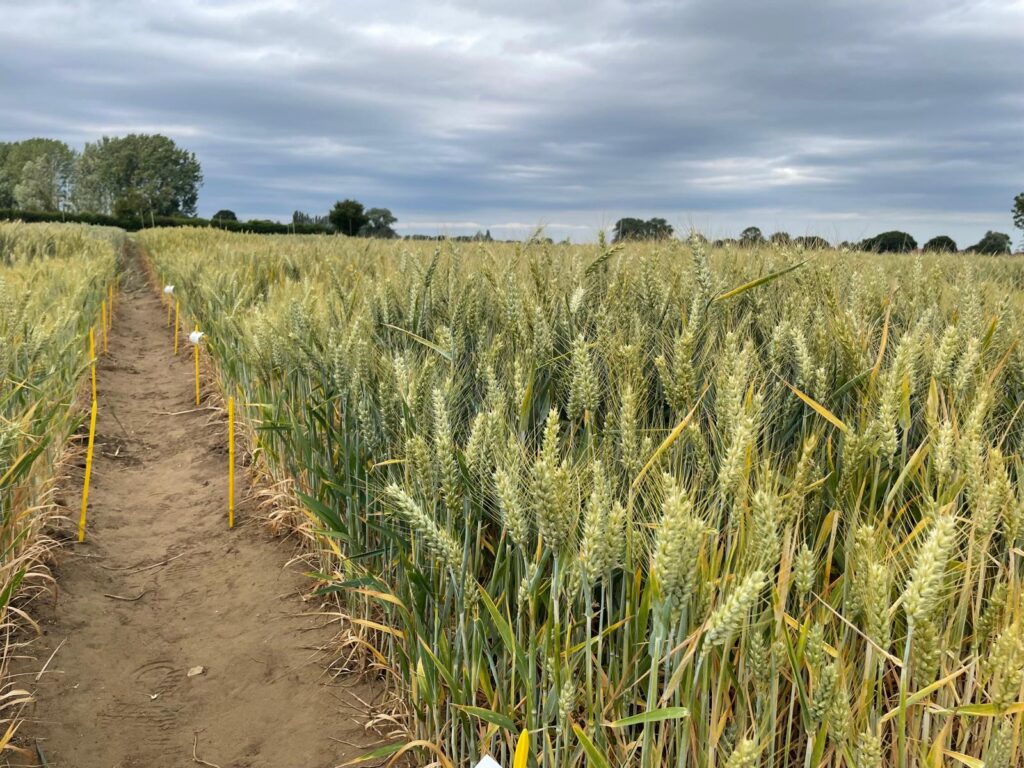NPK’s bio-fertiliser performs as well as synthetic alternatives, early research confirms
Bio-fertiliser made from human urine helps crops grow just as well as widely used alternatives, according to new studies by agricultural scientists.
The independent research is being carried out by the Royal Agricultural University (RAU),UK Agri-Tech Centre, NPK Recovery and a wider consortium of partners, funded by InnovateUK and UKRI. With the latest results from crop trials marking a major milestone for NPK Recovery, which helps events hit their green goals.
The Bristol-based start-up has worked with events including TCS London Marathon and Bristol Pride to extract the nutrients from urine collected at event toilets.
By recycling urine from events NPK Recovery can reduce the number of tanker trips to sewage treatment plants. This will reduce the pressure on our overburdened sewage system and transforms the supply chain for British farming with on-shore production of a sustainable alternative fertiliser.
Our fertiliser is produced by converting naturally occurring nutrients in urine into a safe liquid product that can be used by farmers to reduce their dependence on synthetic fertilisers. Now, research has confirmed that our fertiliser performs similarly to mainstream synthetics. These mass-produced synthetics are energy-intensive to produce and are often imported over thousands of miles.
In trials led by the RAU, NPK’s fertiliser was found to match the performance of the commonly-used fertiliser ammonium nitrate in wheat growth trials. Importantly, NPK’s fertiliser left no toxic elements in the soil and the emissions profile was equivalent to the low levels seen in ammonium nitrate.
Leading agronomic researcher and Professor of Agriculture at the RAU, Nicola Cannon oversaw the collaborative trials. Prof Cannon said the bio-fertiliser “sets crops up for a strong growth foundation” and led to more leaves and shoots growing compared to the control group.
Cannon added: “NPK Recovery’s product offers a nutrient alternative to ammonium nitrate and is an exciting opportunity to reduce the emissions of crop production.”
Research led by the University of the West of England has built the evidence base for the bio-fertiliser on mustard plant trials. Their findings indicate that bio-fertiliser used on mustard plants caused an increase in the levels of light-absorbing chlorophyll, which is vital for plant growth.
Hannah Van Den Bergh, founder of NPK Recovery, said: “It’s fantastic that these trials have confirmed what we suspected: that our bio-fertiliser is just as effective as alternatives.
“Current synthetic fertilisers are energy intensive to create. Meanwhile, we flush urine away that contains nutrients that could be replenishing our fields. NPK Recovery solves both problems.
“We are hugely excited about the coming months where we intend to gather more data from independent trials and continue to manufacture fertiliser from remote waste management at events across the UK. We are actively looking to hear from farmers and growers who would like to trial our fertiliser, so please do get in touch”.
“Finally, a huge thank you to the hard work and support from the NPK team, our many partners and collaborators, and the events and farmers who have joined in this journey with us so far.”

